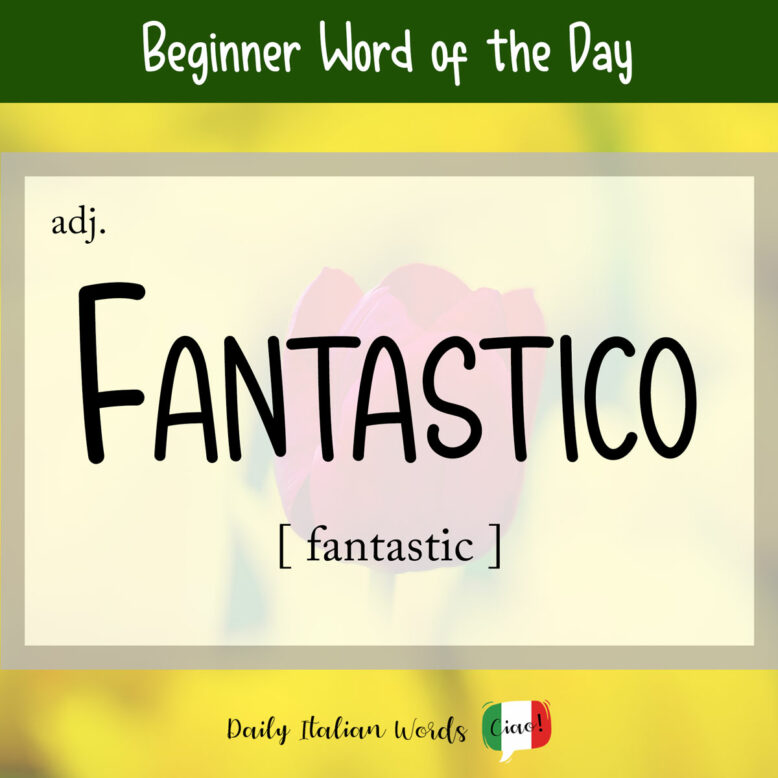Today we have an adjective that should be pretty easy to remember! Simply stick an o onto the end of the English word fantastic, and you get the Italian equivalent fantastico. It is used to describe things that are wonderful and awe-inspiring.

As with many adjectives, the -o ending is used to describe masculine nouns, whereas feminine nouns require the -a ending (fantastica). Their respective plurals are fantastici (masculine) and fantastiche (feminine).
Non è fantastico questo locale?! Vengo qui ogni fine settimana!
Isn’t this place fantastic?! I come here every weekend!

Sometimes fantastico is used in its own as an exclamation to express amazement, extreme happiness, or admiration.
Vieni anche tu alla festa? Fantastico!
You’re coming to the party too? Fantastic!
Fantastico can also denote something that is far removed from reality, such as for example, un racconto fantastico (a fictional story), una creatura fantastica (an imaginary creature) or un’idea fantastica (a far-fetched idea).
Fantastico also exists as a masculine singular noun. Used in this way, it translates as fantasy (literary genre), fantastic thing or something fantastic. For example:
Sto scrivendo una tesi sul fantastico nella letteratura moderna.
I’m writing a thesis about fantasy in modern literature.

Heather Broster is a graduate with honours in linguistics from the University of Western Ontario. She is an aspiring polyglot, proficient in English and Italian, as well as Japanese, Welsh, and French to varying degrees of fluency. Originally from Toronto, Heather has resided in various countries, notably Italy for a period of six years. Her primary focus lies in the fields of language acquisition, education, and bilingual instruction.


